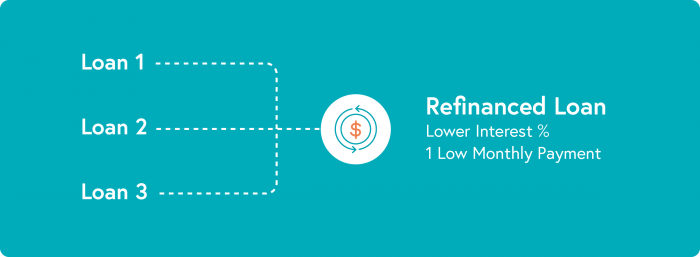
If you have taken out more student loans than you can afford to pay, student loan consolidation might be a good option for you. There are several advantages and disadvantages to this option. In this article, we’ll cover the Pros and Cons. Learn about the different types of student loan consolidation and the advantages and disadvantages of each. We’ll also discuss the pros and cons of paying higher interest rates. Learn more about student loan consolidation before you apply for it.
Con
When deciding to consolidate your student loans, make sure to do your research. If you have federal loans, consolidation is the best option. Private lenders can offer lower monthly payments and longer loan terms. Be sure to research the qualifications of each lender. Most private consolidation loan programs require that borrowers be U.S. citizens, have permanent residency, and have graduated from an eligible school. Keep in mind that interest rates are variable and may adjust monthly, quarterly, or yearly.
Pros
The benefits of student loan consolidation are many. Consolidating your loans allows you to have one monthly payment, which can lower your interest rate and keep you from defaulting on your loan. Consolidating your federal debt also helps you maintain your credit score, since you will have a longer time to pay your debt and the interest rate will be lower. Students usually consolidate their loans when they graduate, drop below half-time enrollment or leave school.
Loss of benefits
When choosing a student loan consolidation program, it is important to know exactly what your options are. Consolidation services are designed to make repayment easier, but the process can have many disadvantages. One of these risks is the potential loss of certain benefits, such as interest rates and principal rebates. In addition, some lenders may encourage students to extend repayment terms. This can increase monthly payments. And, if you’re already behind on payments, a consolidation plan can make them even worse.
Interest rates
When you consolidate your loans, the interest rate you pay will be the weighted average of all the loans you’ve taken out. This means that while the total interest paid on your new loan will be lower than the sum of all your other debt, you’ll end up paying the same amount of interest for the life of the loan. You’ll have to pay a slightly higher interest rate, but there are no fees to consolidate your loans, and the process is completely free.
Duration of loan
While the benefits of student loan consolidation are many, there are disadvantages as well. For one thing, the longer your loan term, the higher your interest rate will be. This can be problematic, as your interest will be based on your new balance. Furthermore, the rate that you received for your current loan may not transfer to the new one. This means that your unpaid interest will be added to your new loan balance and you may end up paying more over the life of the loan than you originally owed.

